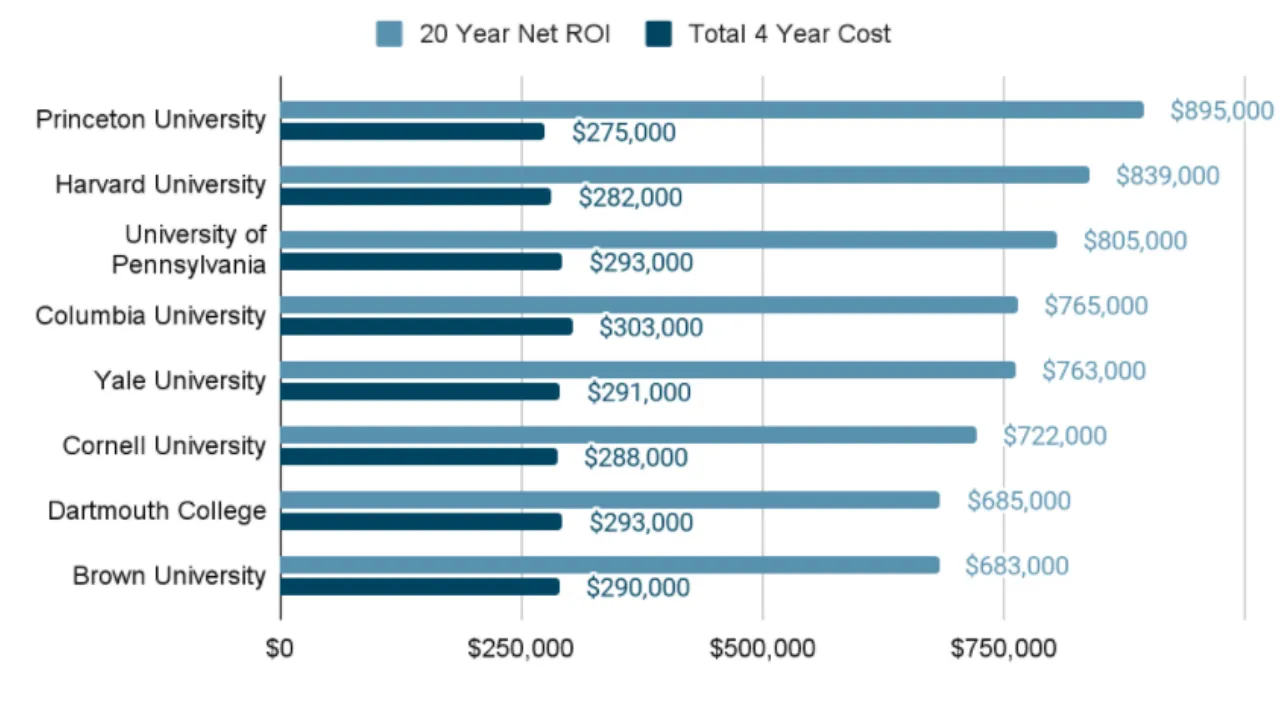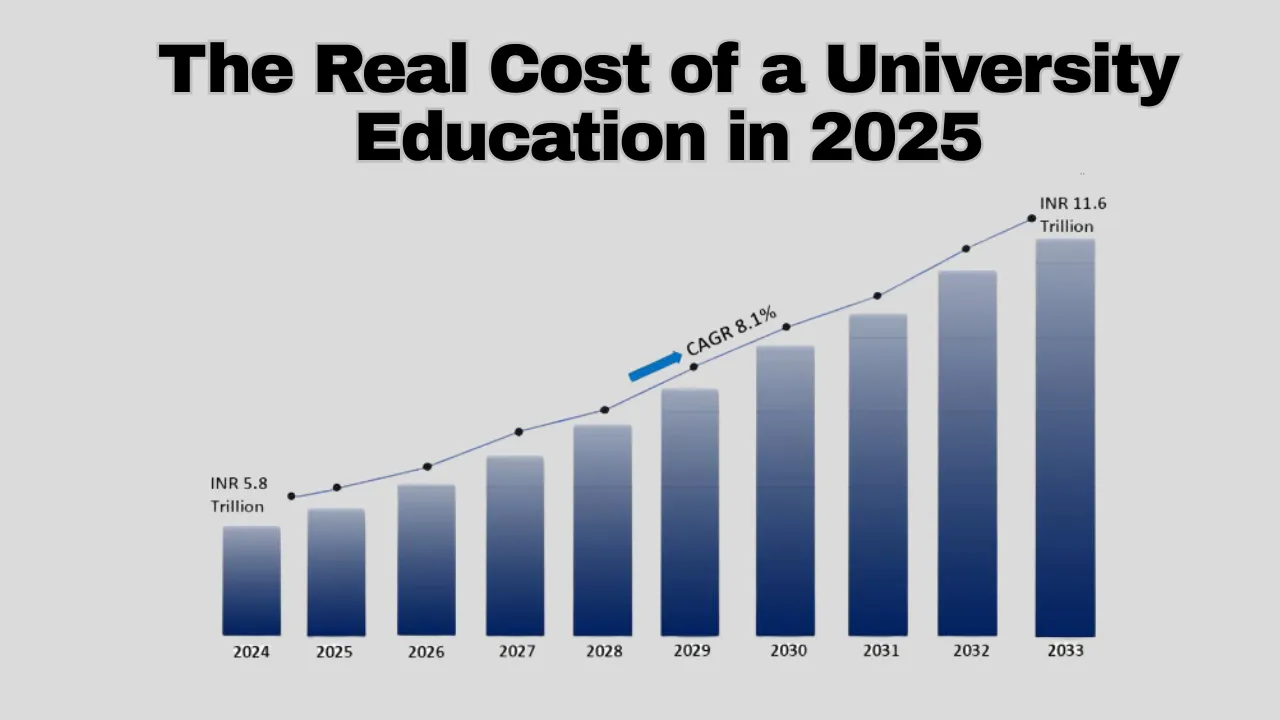Are Ivy League Schools Still Worth It Today: Are Ivy League Schools Still Worth It Today is a question echoing across campuses, job boards, and households everywhere. These elite institutions have long symbolized prestige, power, and success. But with rising costs, changing job markets, and accessible alternatives, people are starting to challenge the long-held belief that Ivy League education is the golden ticket to a successful life.
This article breaks down whether the benefits of attending an Ivy League school still outweigh the costs in 2025. We’ll explore the value of the Ivy League label, compare outcomes with other top schools, and examine what truly matters in education today. If you’re wondering whether to chase the Ivy dream or consider other options, this article will give you a full, honest picture.
The Historical Weight of the Ivy League
The Ivy League name has always been connected to influence, legacy, and privilege. Graduates from Harvard, Yale, Princeton, and their peers have traditionally landed top jobs, built elite networks, and influenced major industries. For decades, this reputation alone made applying and enrolling a no-brainer for students who could get in.
However, are Ivy League schools still worth it today just because of their history? While the reputation still holds weight in many sectors, today’s world values skills, creativity, and adaptability more than just a school name.
Cost vs. Value in 2025
Tuition and fees at Ivy League schools can surpass $80,000 per year. Even with financial aid, many students face high student loans. In return, you get access to renowned professors, top research facilities, and powerful alumni networks. But students today are asking: is that worth it?
In 2025, there are more high-quality and affordable education options than ever. Public universities, honors colleges, and online platforms offer strong outcomes without the massive cost. The return on investment from Ivy League degrees depends on your career goals. For high-paying paths like law, consulting, or finance, the Ivy network can still open doors. But for careers in the arts, education, or entrepreneurship, it may not justify the debt.
Do Employers Still Care About Ivy League Degrees?
The short answer is: it depends. In fields like finance, politics, and law, an Ivy degree still gives an edge. Top firms and recruiters often focus on these schools because of their rigorous admissions and alumni ties. However, in fast-moving industries like tech, media, and startups, skills and experience matter more than school names.
Are Ivy League schools still worth it today when employers are hiring based on portfolios, internships, and projects? In many cases, candidates from state schools or bootcamps compete equally and sometimes even outperform Ivy grads. The playing field is more level now than ever.
The Rise of Alternative Paths
One reason people ask are Ivy League schools still worth it today is because alternatives have become more accepted and respected. Here’s what’s growing in popularity:
- State Honors Colleges: These offer small class sizes and rigorous academics at a lower cost.
- Online Degrees: Platforms like Coursera and edX provide degrees from respected institutions at a fraction of the cost.
- Bootcamps: Coding, marketing, and business bootcamps teach in-demand skills in weeks or months.
- Community Colleges + Transfer: Students start at a low-cost college, then transfer to top universities for the final degree.
These paths show that students have more ways to succeed than just aiming for the Ivies.
Networking and Alumni Advantage
One of the biggest values of an Ivy League education is its powerful alumni network. From CEOs to politicians, these schools connect you to people in top positions. That can mean mentorship, internships, or job referrals that others don’t get easily.
But ask yourself: are Ivy League schools still worth it today if you don’t plan to network heavily or pursue fields where these ties matter? For some students, the value of the network goes unused. If you’re not planning to engage with alumni groups or career offices, you might not get the full return on your investment.
List: When Ivy League May Still Be Worth It
- You have strong financial aid or family support and won’t take on major debt.
- You’re entering fields like law, finance, or government where prestige helps.
- You plan to use the alumni network for career growth.
- You value rigorous academic environments and long-term brand power.
- You enjoy being part of highly competitive and historic institutions.
List: When Other Options Might Be Better
- You prefer smaller class sizes and more personalized attention.
- You want to avoid high student loans and financial stress.
- You’re aiming for creative or tech-based careers where skills beat prestige.
- You want flexibility through hybrid or online programs.
- You believe in learning by doing over learning by theory.
Real Student Outcomes
Today, students from public universities, international schools, and even online platforms are working at top companies and launching successful startups. Many of them have less debt and more practical experience. Ivy League grads still do very well, but they are no longer the only ones with access to top opportunities.
What matters most now is how you use your education—what you learn, how you apply it, and who you connect with along the way.
FAQs
Q1: Are Ivy League schools worth the cost in 2025?
They can be, especially for certain careers and if you receive strong financial aid. But for many, other schools offer similar outcomes at a lower cost.
Q2: Do Ivy League graduates earn more?
On average, yes. But the difference is shrinking as employers value skills, internships, and performance over prestige alone.
Q3: Is it hard to get into Ivy League schools today?
Yes. Acceptance rates remain low, often under 5% for top schools, making them very competitive.
Q4: What alternatives are there to Ivy League schools?
Public honors colleges, international universities, online programs, and private universities with strong reputations are great alternatives.
Q5: Should I still apply to Ivy League schools?
If you meet the criteria and it fits your goals and budget, yes. But always apply broadly and consider cost, fit, and long-term value.
Final Thought
So, are Ivy League schools still worth it today? The answer isn’t one-size-fits-all. They still offer prestige, connections, and quality—but they’re not the only path to success. In today’s world, your goals, finances, and how you use your education matter far more than just the school name.
We’d love to hear your thoughts! Are you considering an Ivy, or are you going in a different direction? Share your story in the comments or explore more career and education insights in our latest features.










